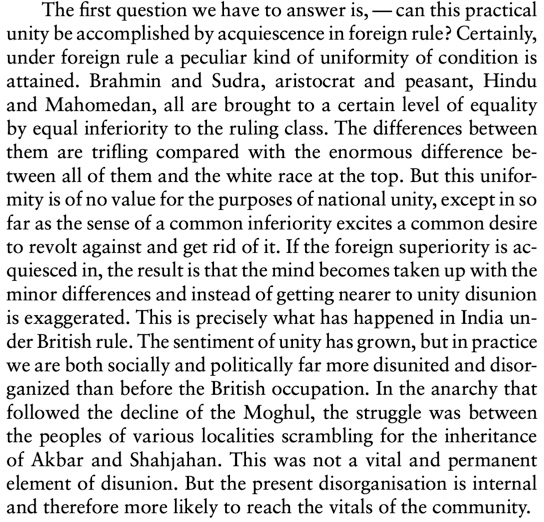
It is unsurprising that American city councils are filled with useful idiots who see an opportunity to seize electoral clout by passing meaningless resolutions against other countries, but the bigger concern is that certain Indians themselves see this as a legit form of politics
The habit of appealing to foreign powers to settle domestic political disputes is a bad habit with a long pedigree in India. Aurobindo called out the Congress Moderates for the same in the early 20th century:
In the passage below, he excoriates Gopal Gokhale (a leader of the moderate faction) for patronizing the Anglo-Indian press in preference to the swadeshi press 

As Aurobindo notes, such "unreasonable partiality" is unpardonable to every self-respecting Indian. However, he also sees such behavior as endemic to the "moderate" view of political activity.
The Moderates did not believe that Indians were ready to govern themselves, so they limited themselves to constitutional agitation within the institutional limits prescribed by the colonizer, e.g. demanding representation on random vice-regal councils that had no real power.
The effects were pernicious: "The very basis of constitutional agitation is a reliance on the foreigner and a habit of appealing to him, which is the reverse side of a distrust and certain contempt for their own people"
This is not about agreement with the BJP or even optimism about India's democratic trajectory; it's about trusting Indians (who btw are NOT clamoring for Americans to save them from themselves) to figure it out on their own. Hard to believe I know, but they don't need you guys!
• • •
Missing some Tweet in this thread? You can try to
force a refresh











